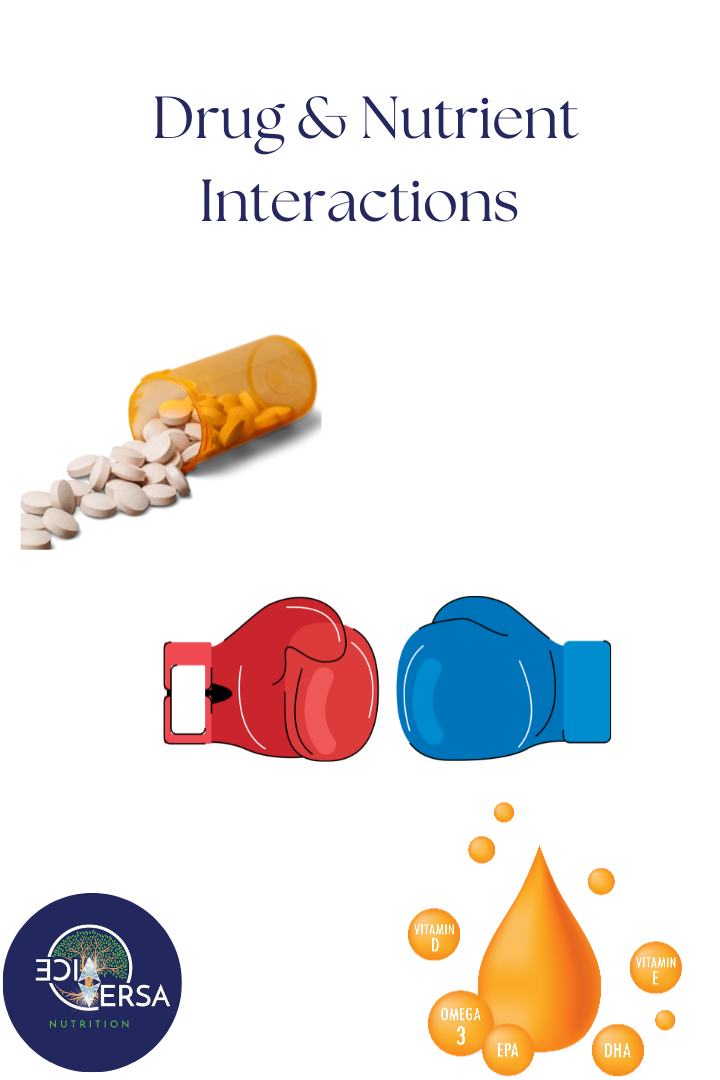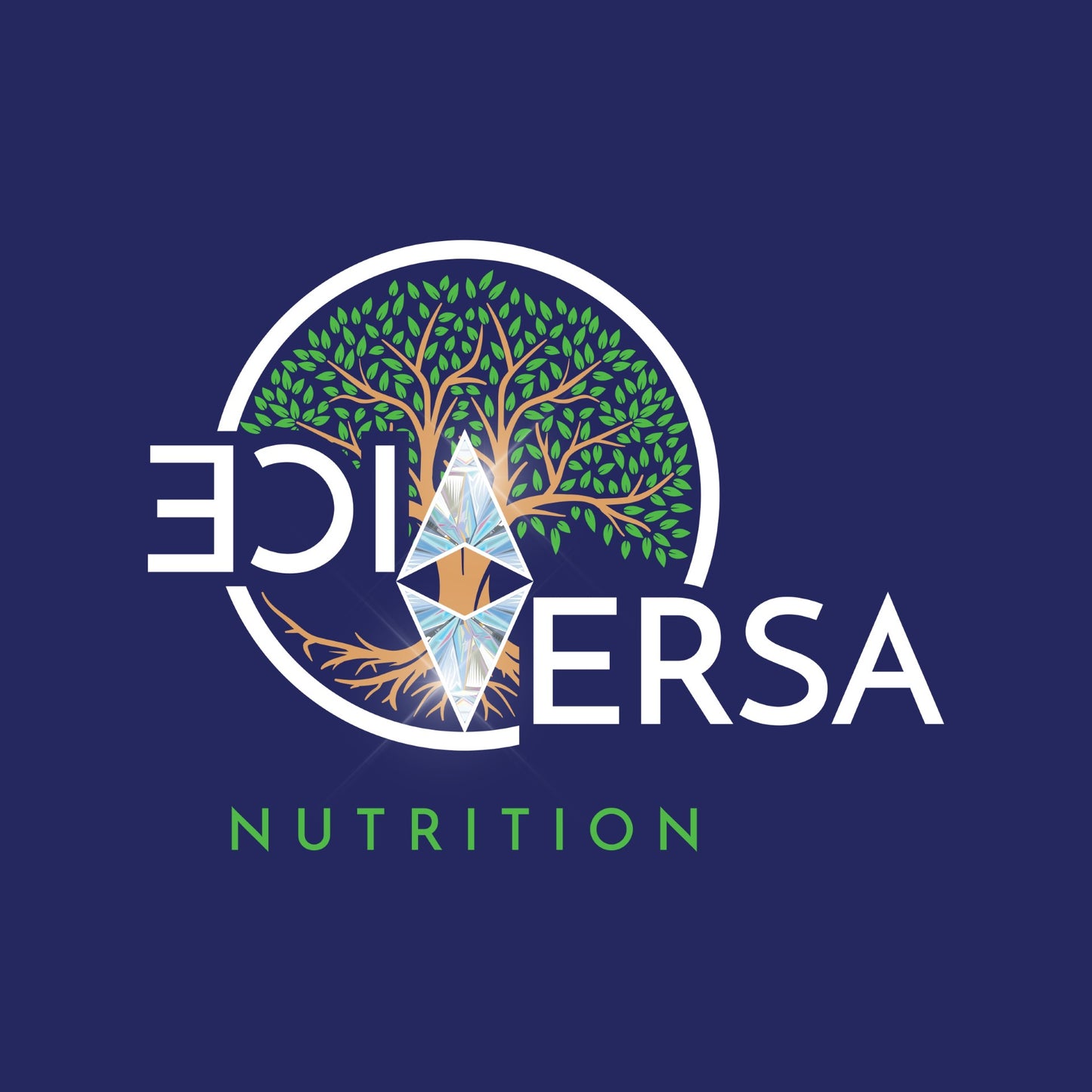
Prescription drugs have become a common part of our lives, helping us manage and treat various health conditions. However, what many people may not realise is that these medications can also have a significant impact on our body's nutrient absorption. Certain drugs can alter the way our bodies process and utilise nutrients, leading to potential deficiencies or interactions that may affect our overall health. In this blog post, we will explore the complex relationship between prescription drugs and nutrient absorption, and how it can potentially fuel or fail our bodies.
Unravelling the Intricacy of Drug and Nutrient Interactions
Prescription drugs and nutrients may seem like unrelated entities, but their interactions within our bodies can be incredibly intricate. Understanding this complexity is essential for ensuring our health and well-being.
When we take prescription drugs, they can affect the way our bodies process and absorb nutrients. This can result in potential deficiencies or interactions that may impact our overall health. The intricacy lies in the fact that certain drugs can enhance or inhibit the absorption of specific nutrients, potentially leading to imbalances in our bodies.
The complexity deepens when considering that drug-nutrient interactions can vary from person to person, depending on factors such as genetics, metabolism, and overall health status. This means that what may work for one person may not be effective for another. Therefore, it is crucial to recognise and appreciate the intricate nature of these interactions to tailor our approach accordingly.
By unravelling the intricacy of drug and nutrient interactions, we can develop a better understanding of how prescription drugs may impact our nutrient absorption. This knowledge allows us to make informed decisions about our diet, supplements, and medication management, ensuring that our bodies receive the necessary nourishment for optimal health. In the following sections, we will delve deeper into specific drug-nutrient interactions and explore strategic approaches to minimise their negative effects.
An In-depth Look at Specific Drug-Nutrient Interactions
Prescription drugs can have a significant impact on our body's nutrient absorption, and it's important to understand how specific medications can interact with nutrients. Let's take an in-depth look at some common drug-nutrient interactions.An In-depth Look at Specific Drug-Nutrient Interactions
First, let's discuss the interaction between statins, a type of medication used to lower cholesterol, and Coenzyme Q10 (CoQ10), a vital nutrient that plays a crucial role in energy production. Statins have been found to reduce the levels of CoQ10 in the body, leading to potential deficiencies. This is particularly concerning because CoQ10 is essential for heart health, and a deficiency may contribute to muscle weakness and fatigue.
Another important interaction to consider is the effect of oral contraceptives on vitamin B6 levels. Birth control pills can lower vitamin B6 levels in the body, which is necessary for brain development and the production of neurotransmitters. A deficiency in vitamin B6 can result in mood swings, irritability, and impaired cognitive function.
Additionally, antacids that contain aluminium, calcium, or magnesium can interfere with the absorption of certain antibiotics. These minerals can bind to antibiotics, preventing their absorption and reducing their effectiveness in fighting bacterial infections.
These examples as previously discovered can vary from person to person. Below are a few common symptoms that occur regularly when a drug nutrient interaction is taking place.
1. Diarrhoea
2. Server nausea and vomiting
3. Dizziness
4. Irritated skin (rash)
5. Constipation
6. Restless & Exhausted
Strategic Approaches to Minimise Negative Effects of Drug-Nutrient Interactions
There are strategic approaches that we can take to minimise these negative effects and ensure that we are still getting the necessary nutrients whilst benefiting from the medications we take.
One important approach is to consult with our healthcare professionals. They can provide valuable insight into the potential drug-nutrient interactions and recommend dietary adjustments or supplements that can help offset any deficiencies caused by the medications. It is crucial to communicate openly and honestly about the medications we are taking and any concerns we may have about their impact on our nutrient absorption.
Another approach is to be mindful of our diet and make conscious choices to include nutrient-rich foods. By consuming a varied and balanced diet, we can help compensate for any potential nutrient deficiencies caused by medication. This means focusing on incorporating fruits, vegetables, whole grains, lean proteins, and healthy fats into our meals.
In some cases, supplementation may be necessary to bridge the nutrient gaps. However, it is important to consult with a healthcare professional before starting any new supplements. They can provide guidance on appropriate dosages and help us choose supplements that are compatible with our medications.
Lastly, it is essential to regularly monitor our nutrient levels through blood tests. By regularly checking our nutrient levels, we can identify any deficiencies early on and take proactive measures to address them. This allows us to stay on top of our health and make any necessary adjustments to our medication or diet.
In conclusion, strategic approaches such as consulting with healthcare professionals, mindful eating, supplementation, and regular monitoring of nutrient levels can help minimise the negative effects of drug-nutrient interactions. By being proactive and taking steps to optimise our nutrient absorption, we can ensure that our bodies are well-nourished and supported whilst managing our health conditions with prescription drugs.
Thank you for taking the time to read this post, I want to give you a gentle reminder that the blog posts provided are here for you as a form of awareness of possible scenarios, and not to be a substitute for medical advice. Always seek your health care professional before making any changes.
Have a great day and stay healthy!
